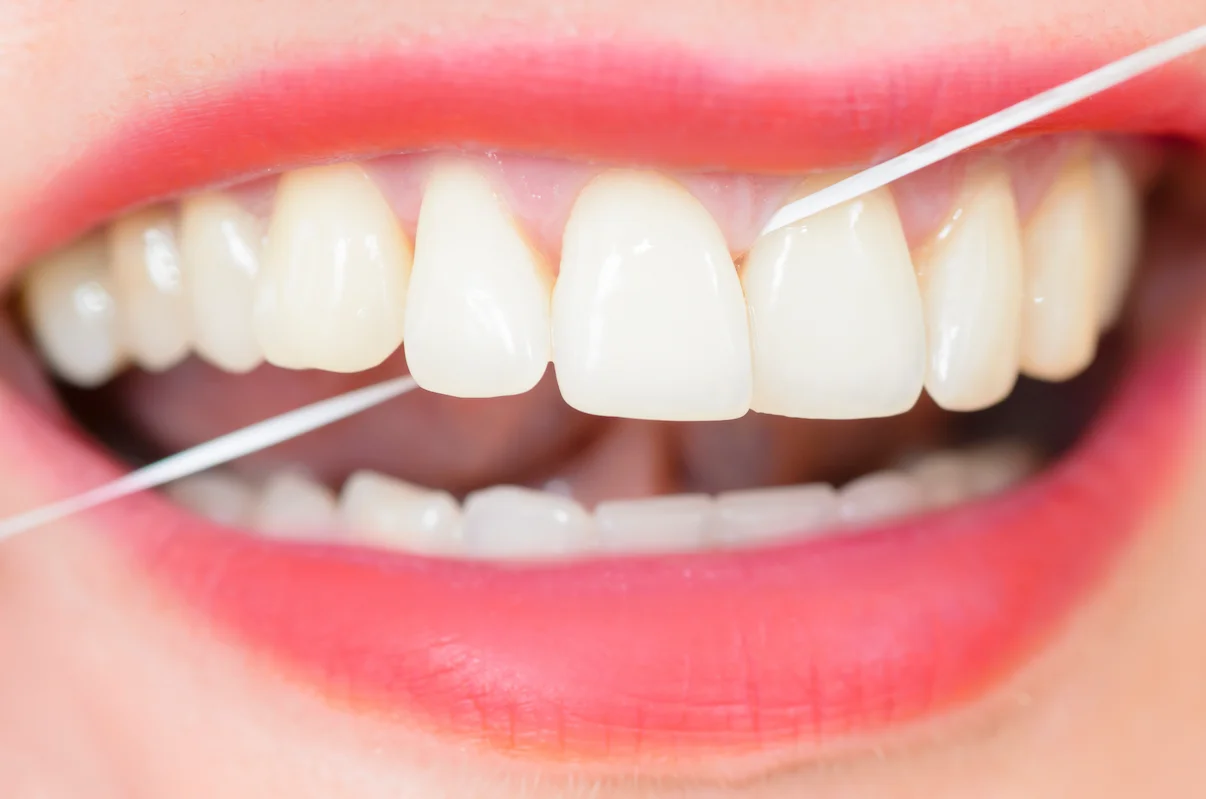Submit Request ...
-
Forums
Five Causes Of Bleeding Gums When Brushing Your Teeth

If you've noticed some blood after brushing or flossing your teeth, don't panic. There are several reasons why gums bleed when brushing. So what’s causing your bleeding gums and more importantly, what can you do about it? Learn about the common causes of bleeding gums after brushing and when to see your dentist.
What Makes Gums Bleed When Brushing?
There are several reasons why your gums bleed when brushing. Some causes are more severe than others. The most common causes include:
✓ Gingivitis.
✓ Medications.
✓ Changes in dental hygiene routine.
✓ Brushing or flossing too vigorously or with too much pressure.
1. Gingivitis
The main cause of bleeding gums is gingivitis, also known as early gum disease or periodontal disease. Gingivitis can cause swollen, tender gums that may bleed during brushing. When plaque on your teeth and at the gum line is not removed by brushing and flossing, the bacteria in plaque can infect and irritate the gums.
The leading cause of gingivitis is improper oral hygiene. If not addressed, gingivitis can progress to periodontal disease. The good news is you can prevent this outcome and reverse gingivitis by seeking treatment from your dentist or hygienist as soon as the early signs appear.
If your dentist has diagnosed gingivitis, you should be aware that gingivitis can contribute to other health conditions. According to the American Academy of Periodontology, there is a two-way relationship between diabetes and gum disease, with each one increasing the risk of developing the other. There is also a potential association between gum disease and other severe health conditions such as heart disease and stroke.

2. Medications
Blood-thinning medications can also make gums bleed when brushing by decreasing the blood’s ability to clot. Let your dentist and physician know if this happens to you, and tell your dentist about any medicines you're taking during your regular appointments. If the bleeding becomes more serious, contact your physician immediately.
3. Changes in Your Dental Care Routine
If you have not flossed regularly before, your gums might start to bleed between your teeth when you begin to floss. It should clear up within a week with consistent flossing. If it doesn't, then contact your dentist to set up an appointment because this may be a sign of gingivitis.
Using a firm-bristled toothbrush may also result in bleeding gums. Switch to a soft or medium-bristled brush and talk to your dental about what toothbrush is right for you at your next appointment.
4. Brushing or Flossing Too Vigorously
You may notice some bleeding if you floss or brush too vigorously. But don't give up the practice — both flossing and brushing are critical for oral health. Ensure you use a soft-bristled toothbrush and use a gentler touch. The bleeding should stop within a week.
5. Pregnancy Gingivitis
Pregnant women may experience swollen gums and bleeding during brushing. The American Pregnancy Association calls this "pregnancy gingivitis." Hormones can alter the body's response to the bacteria that cause gum disease, causing inflammation. Going to your dental hygiene appointments, brushing regularly, and flossing daily can help to prevent gum inflammation and bleeding from becoming worse.
Other Causes of Bleeding Gums
Here are some less-common reasons gums bleed when brushing:

Nutrient deficiency. Certain nutrients play an important role in gum health, particularly vitamins C, D, and K. They’re all involved in healthy immune function and healing, so a lack of any one of these vitamins can make your gums more vulnerable to infection, trauma and bleeding. Vitamin K is also required for blood clotting.
Menopause. Like pregnancy, menopause is a time of intense hormone fluctuations that can lead to gums bleeding when brushing.
Diabetes. Poorly controlled diabetes causes high blood sugar, which can contribute to gum disease and bleeding gums.
Blood disorders. Conditions that affect the blood, like leukemia or hemophilia, can make bleeding more likely and harder to control.
Bleeding Gums Treatment
The best way to stop gums bleeding when brushing depends on the cause, and may or may not require professional help.
How To Stop Gums Bleeding When Brushing
If you have a mild case of gingivitis, your symptoms might improve with a few changes to your oral hygiene routine and lifestyle. Try:
✓ Brushing twice a day with an anti-plaque toothpaste and a soft-bristled toothbrush.
✓ Flossing every day or using an interdental cleaner of your choice.
✓ Being gentle with the toothbrush and floss.

✓ Using an antimicrobial mouthwash once a day.
✓ Eating crunchy fruits and veggies.
✓ Cutting down on sugary foods and drinks.
✓ Quitting smoking or using tobacco.
If you haven’t had a professional cleaning in a while, it’s a good idea to schedule one soon. Make sure to book them every six months to keep your gums clean and healthy.
When To Get Professional Help
It’s time to ask your dentist or dental hygienist for help if:
1. Gingivitis symptoms don’t improve after a few weeks of thorough and consistent oral hygiene.
2. You have symptoms of more advanced gum disease, like receding gums or loose teeth.
3. You also have lots of plaque or tartar (hardened plaque), which can only be removed professionally.
4. You have symptoms of a dental infection, such as a fever, or swelling or pain in the face and jaw.

5. You’ve had trauma or injury to your gums and they’re not healing.
6. The bleeding is heavy or doesn’t stop after brushing.
You should also contact your physician if:
1. You have a health condition or medication that may be making your gums bleed.
2. You suspect a nutrient deficiency or you’re struggling to manage it.
3. You need help quitting smoking.
What Happens if You Ignore Bleeding Gums?
Gums bleeding when brushing could be a sign of an underlying problem like gingivitis that needs treatment. Gingivitis is reversible with prompt treatment, but if it progresses to periodontitis, you might be left with irreversible damage to your teeth, gums, and jaw bone. For that reason, bleeding gums should never be ignored.
To reduce the risk of bleeding gums or ease gum irritation, always maintain proper oral hygiene using a soft-bristled brush and gentle flossing technique. Keep up with your dental appointments so you can prevent gingivitis and more severe gum disease, and remember to always ask your dentist for advice if you have symptoms of periodontitis or infection.
Articles are reviewed by Dr. Moein Taghvi. This information is for educational purposes only. This content is not intended to be a substitute for professional medical advice, diagnosis or treatment. Always seek the advice of your dentist, physician or other qualified healthcare provider.
Please let us know what you think!